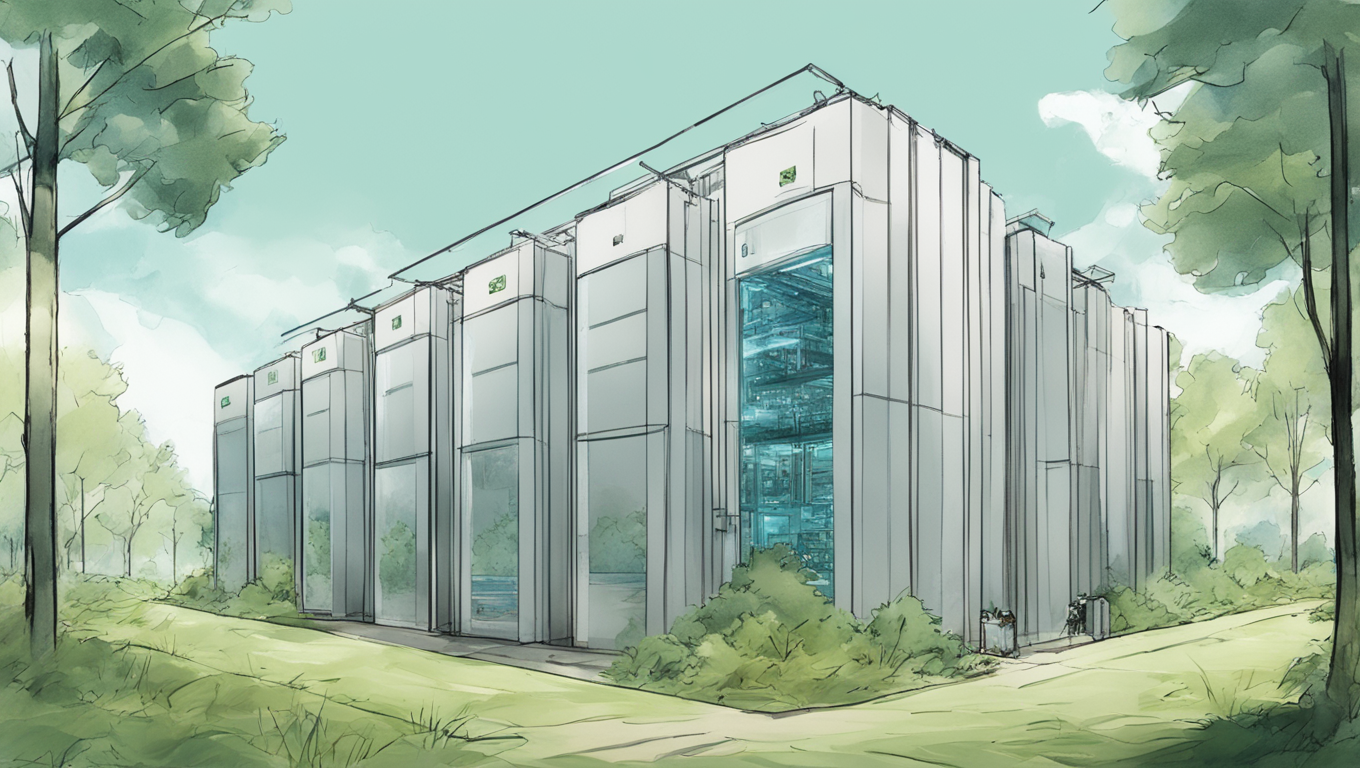Artificial intelligence (AI) requires enormous amounts of computational power, and Microsoft is exploring a new avenue to meet that demand. The tech giant is now considering the use of small nuclear reactors to power its AI and cloud data centers, according to a recently posted job description. Microsoft is seeking a nuclear technology expert to assess the integration of small modular nuclear reactors and microreactors for this purpose. The company aims to generate energy through nuclear fission, the splitting of atoms to release energy.
This move by Microsoft is part of a larger trend in the tech industry, as companies seek sustainable and clean energy sources for their operations. Nuclear energy, especially with the advancements in small modular reactors, presents a promising option. Microsoft’s co-founder, Bill Gates, who also serves as the chairman of nuclear innovation company TerraPower, has been a vocal advocate for nuclear energy as a critical component in the fight against climate change. By investing in nuclear technology, Microsoft is aligning itself with Gates' vision for a sustainable future.
The interest in nuclear energy arises from its ability to generate electricity without releasing significant carbon dioxide emissions. The existing nuclear reactors in the U.S. currently contribute about 18% of the total electricity in the country, making up 47% of its carbon-free electricity. However, the need for more advanced and cost-effective reactor technology has become apparent. Small nuclear reactors offer a solution to this problem. By being smaller, cheaper, and quicker to build, these reactors could provide an alternative to traditional reactors, alleviating concerns about the time and cost burdens associated with nuclear energy.
Microsoft’s pursuit of nuclear energy for its data centers is not limited to small modular reactors. The company has also committed to exploring nuclear fusion, a process that occurs when two atomic nuclei collide to form a heavier atom, releasing immense amounts of energy in the process. While fusion has yet to be achieved at scale on Earth, the potential for virtually unlimited clean energy is driving investment in this field. Microsoft’s power purchase agreement with nuclear fusion startup Helion demonstrates its commitment to pursuing innovative and sustainable energy solutions.
The integration of nuclear energy into data centers signifies a significant step forward for both the technology and energy sectors. By harnessing the power of nuclear reactors, Microsoft can ensure the continuous operation of its AI and cloud data centers while reducing its carbon footprint. The company’s vision extends beyond AI and data centers, as it aims to contribute to a more sustainable future through its investments in nuclear technology.
The exact details of how Microsoft plans to integrate nuclear energy into its data centers are yet to be revealed. However, the company’s move to hire a nuclear energy expert highlights its dedication to exploring innovative and sustainable solutions. Microsoft is leading the way in the tech industry by recognizing the importance of clean energy sources for powering the technologies that drive our modern world. With advancements in nuclear technology and the support of industry leaders like Bill Gates, the prospect of nuclear-powered AI and data centers could become a reality sooner than anticipated. As the world continues to prioritize sustainability, the fusion of technology and nuclear energy may pave the way for a greener future.





Use the share button below if you liked it.